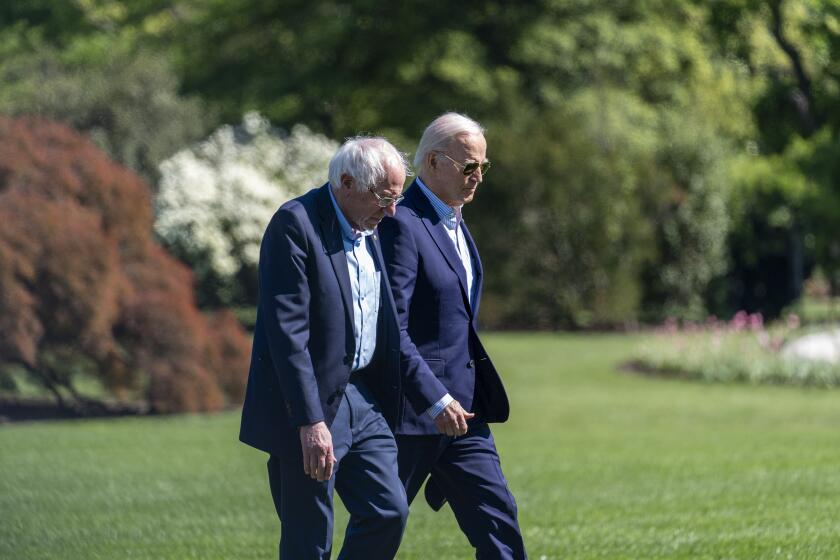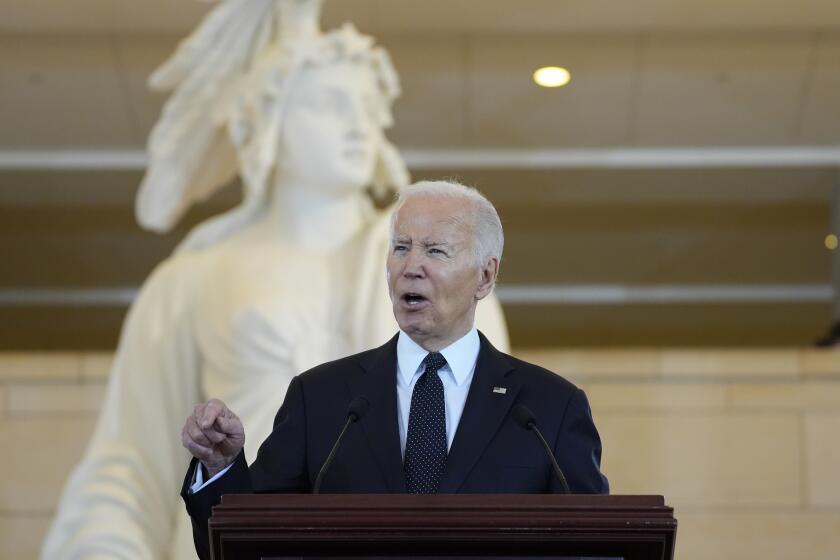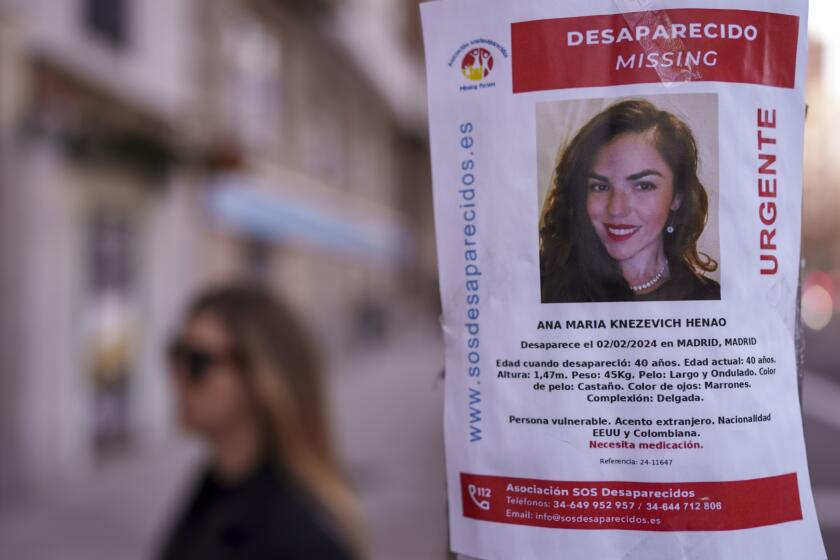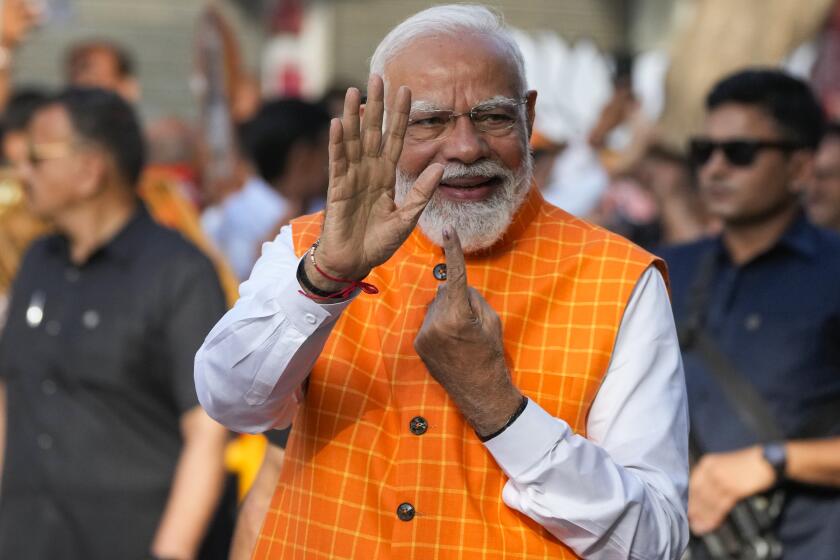Soviets Asked to Host Christian-Marxist Session : Vatican Officials Eager to Pursue Dialogue That Began Last Year in Budapest
The Vatican hopes that the Soviet Union will agree to host the first formal dialogue in the U.S.S.R. between Catholic officials and Marxist philosophers next year, a former California bishop on the church’s Secretariat for Non-Believers said.
Bishop Mark Hurley, who left for Rome last week after ending 17 years as bishop of the Diocese of Santa Rosa, said the Vatican is waiting for Soviet approval of the proposed meeting.
“(The secretariat) is very interested in advancing the dialogue which was begun in Budapest last fall with the Soviet philosophers,” Hurley said. “The hope is to meet in Leningrad in the spring or fall of 1988, perhaps concomitant with their observances of the 1,000th anniversary of Christianity coming to Russia.”
Hurley said the topic will not necessarily be, “Is God Dead?” That title was suggested by the undersecretary of the secretariat when news of the possible dialogue was published in a Rome newspaper last February, he said.
Variety of Topics
At the last Christian-Marxist dialogue, held Oct. 8-11 in Budapest, a variety of topics were discussed, including “Values Common to Marxists and Christians,” “The Christian Concept of Man” and “Social Cooperation Between Believers and Non-Believers.”
Among those present were Boris Grigorian, director of the Institute of Contemporary Philosophy in the USSR Academy of Science, and Victor Garadja, president of the Scientific Institute for Atheism in Moscow as well as academicians from Eastern Europe.
Hurley, 67, the only American among 12 cardinals and bishops on the secretariat, was appointed last year to his third term on the Vatican agency. This will be his first term with an opportunity to spend prolonged periods in Rome. There are three other comparable Vatican secretariats: for ecumenical relations with other Christian bodies, for Judaism and for other major non-Christian religions.
The Secretariat for Non-Believers seek dialogues on a theoretical plane, “but theory becomes the power and motivation for practice,” Hurley said.
Concern With Religious Liberty
Religious liberty in communist countries, or the lack of it, was a Vatican concern at Budapest and clearly would be again at the next meeting, Hurley said.
Cardinal Paul Poupard, head of the secretariat, said on the last day of Budapest meeting that the credibility of the dialogue depends on “the full and effective realization of religious liberty.” However, Hurley said the Vatican was not likely to demand that certain reforms in religious liberty be met before the proposed meeting within the Soviet Union.
The secretariat’s dialogue with Marxists has been criticized by some Catholics as compromising the church’s principles or faith, but Hurley discounted the charge. “It is not true at all,” he said.
The Vatican has had relations with East European officials before, but contacts with Soviet officials have been more difficult and the dialogues’s prospects might be tied to other negotiations.
Possibility of Papal Visit
The possibility of a Soviet visit by Pope John Paul II has been raised in the press. The Pope has said he would reject an invitation to Moscow unless a ban was lifted allowing him to visit Lithuania, where there are 2.5 million Catholics.
Hurley said another obstacle to a papal visit is that Ukrainian Catholics may see the Pope’s visit as a legitimation of the Orthodox Church’s disputed authority over them.
The leader-in-exile of Ukrainian Catholics, Cardinal Ivan Lubachivski, said in an Italian magazine interview last month that any trip to Moscow would be exploited by Soviet authorities for propaganda purposes. Under Stalin, the Ukrainian Catholic Church was forcibly merged with the Russian Orthodox Church.
More to Read
Start your day right
Sign up for Essential California for news, features and recommendations from the L.A. Times and beyond in your inbox six days a week.
You may occasionally receive promotional content from the Los Angeles Times.






